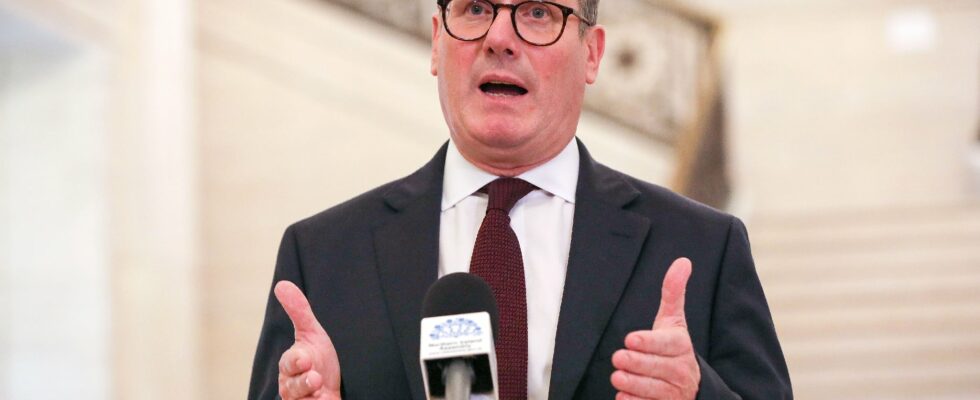Prime Minister Keir Starmer, who took office in early July after fourteen years of Conservative rule, is facing his first crisis. “Facing its worst riots in 13 years,” the United Kingdom is in turmoil following the murder of three young girls in the town of Southport, near Liverpool in the northwest of the country. Speculation, still unsubstantiated at this time, about the origin and religion of the main suspect, is at the root of a major wave of xenophobic riots. After a week of protests, 378 people have been arrested according to the Federation of British Police Forces.
Many are wondering about the ability of the new leader presented by the online media to act Politico Europe as someone of a “ordinary and dull” nature. Andrew Rawnsley, political commentator for Guardian (left), takes up the issue through a column which he titles thus: “Putting a stop to the violence of the extreme right is an early but revealing test of Keir Starmer’s strength of character.”
The challenge is considerable when we consider the scale and violence of the demonstrations that The Timesa centre-right general interest newspaper, provides some insight by reporting on the assault on a hotel housing asylum seekers in Rotherham, a town in the county of York. “Despite mounted police and riot officers, hooded men smashed the window of the dining room […] and sneaked into the corridors where 130 migrants live, terrified by the situation. A group of eight rioters, part of a gathering of 500 people, also set fire to the building and blocked an emergency exit,” it can be read. “They came to my floor and beat me until the police chased them into the corridor,” testifies in the columns of the British media, an asylum seeker victim of the intrusion.
However, Andrew Rawnsley – commentator at Guardian– draws on Starmer’s experience to give him credit for his ability to manage the crisis. In 2011, there were major riots following the police murder of Mark Duggan. As Attorney General, Keir Starmer distinguished himself by “his extremely tough stance on violent unrest [NDLR : il s’agit d’une infraction pénale au Royaume-Uni]” An intuition that he supports by the Prime Minister’s decision to describe the riots, during his speeches, as falling within the realm of “law and order”.
Foreign interference
Shaken from within, the United Kingdom is currently more vulnerable to foreign pressure from “hostile countries” with the capacity to “stir up fear and foment division”, in the words of Andrew Rawnsley. An article in Daily Telegraphin fact sheds light on the “gray war” waged by Vladimir Putin against the West.
“Russian state media are among those that have spread false claims that the suspect […] was an asylum seeker who arrived in the UK by boat,” reports journalist Dominic Penna. Keir Starmer’s spokesman also said: “It is clear that we have seen bot activity online, much of which may well be amplified by the involvement of state actors.”
For his part, The Independent (centre left) focuses on the positions of the controversial American billionaire, Elon Musk. The founder of Tesla stated on Sunday 4 August on X – formerly Twitter – that “civil war is inevitable”. A statement to which Downing Street did not fail to respond, declaring that “nothing justifies such remarks”. The British newspaper also highlights the criticisms against the social network accused of “contributing to fueling far-right racist riots”.
